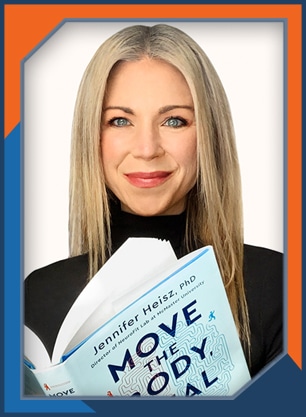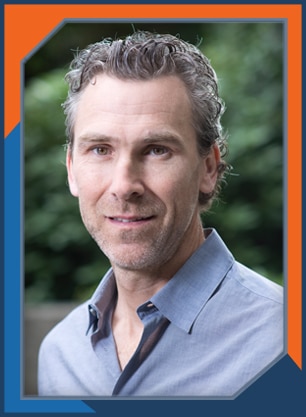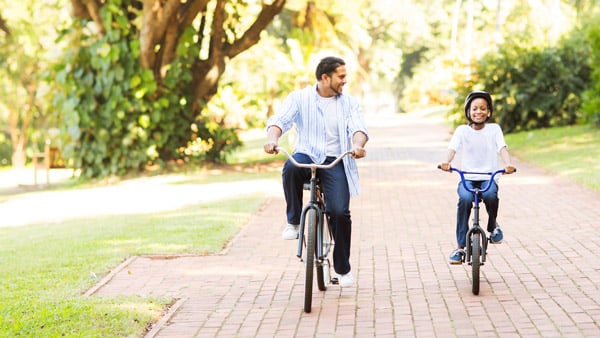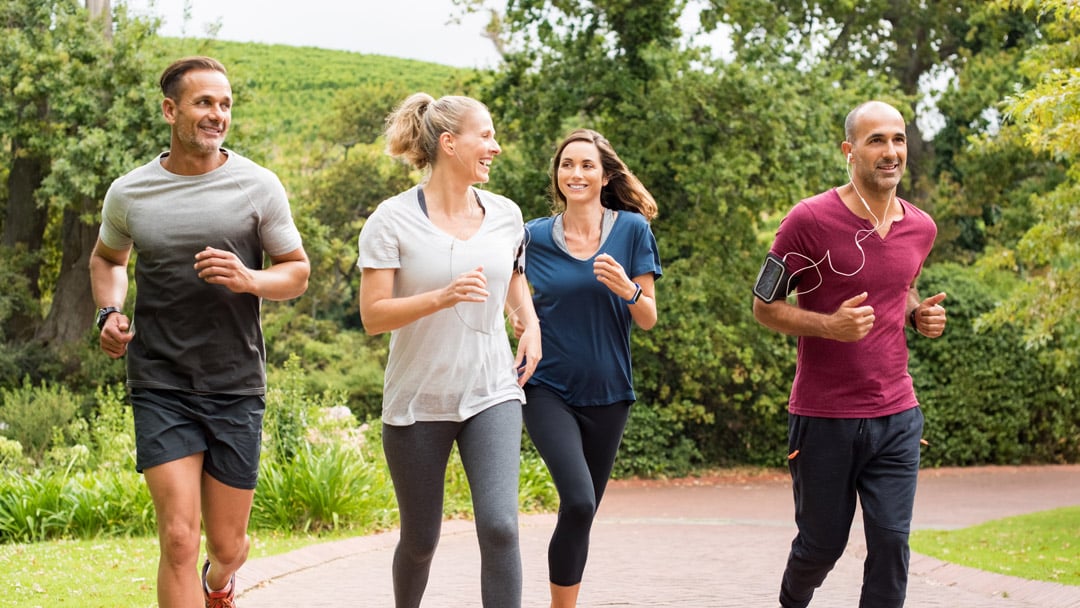As a former NHL All-Star, Trevor Linden says, “working out was my job.” But what happened when the player nicknamed “Captain Canuck” retired from being a pro athlete in 2006? “I realized that I need physical activity for my mental wellbeing,” Trevor reveals in the premiere episode of the new Don’t Change Much Podcast. “I realized I’m a better husband, a better friend, and a better father when I stay active.”
Hosted by Sportsnet broadcaster Dan Murphy, this “Move Your Body For Your Mind” episode brings Trevor together with Dr. Jennifer Heisz, Associate Professor of the Physical Activity Centre of Excellence at McMaster University, to talk about the importance of exercise and how it positively affects our mental and physical health.
What happens to your brain when you exercise?

Ever wonder why exercise makes you feel good right away? Here’s the science behind this. According to Dr. Heisz, “When we exercise, we release a hormone called endorphins; they are your body’s natural pain killers. Exercise also increases endocannabinoids, which are the body’s natural form of cannabis. This helps to increase dopamine in the brain, which is extremely rewarding for the brain and motivating.”
“We’ve been conducting research on the effects of exercise on mental health, anxiety and depression, and we’ve found that there are positive effects immediately after exercising,” Dr. Heisz says. “As soon as we stop exercising, we feel less anxious, our mood improves, and we are better able to focus on whatever we are doing.”
How to motivate yourself to get moving
Packed as it is with expert advice and encouragement, the best way to make the most of the half-hour new Don’t Change Much Podcast is to check it out right now. But if you’re short on time, we’ve pulled out seven all-star tips to get off the couch and take advantage of the brain-changing benefits of exercise.
Use feeling good as motivation
Dr. Heisz: “When you start using exercise as medicine for the mind, it leads to a totally different approach. It can take months to build muscles or lose weight, which can be discouraging and cause people to quit. But when your motivation is to feel good, you get it immediately, and that’s really encouraging. For me, that’s what really flipped the switch to make exercise part of my life.”
Walk and enjoy going slow

Trevor: “Exercise can be as simple as getting out for a walk down the street. I go for walks with my son, who loves to look at all the construction sites around our place. One of the things that is so cool is that he points out things I would never notice. We breathe the fresh air and take in the views. It feels good just to go slow.”
Make exercise a positive experience
Dr. Heisz: “Exercising is hard. It’s a stressor on the body. So we need to reinforce exercise as a positive experience, and any kind of celebration helps. Take a moment to notice how much better you feel afterwards, and combine it with things you enjoy, such as listening to your favourite music or podcast. All of this stimulates the reward system in the brain, and it links that rewarding feeling to exercise.”
Ask a friend to join you
Dr. Heisz: “The social benefits of exercise are just so tremendous, and they actually add onto the physical and mental benefits in a really profound way. During the pandemic, there was so much isolation, and when the brain doesn’t get enough social stimulation, it really starves. This can lead to mental health issues and even things like dementia. Incorporating social engagement or social activities into our physical activity is such an easy way to couple the two (exercise and socializing) to get the benefits”.
Feel like a kid again

Trevor: “As kids, we ride our bikes because it’s fun. Then when we become adults, we stop riding bikes because we’re doing other things. I started cycling again around the time I retired from the NHL and realized as an adult that being on a bike is fun. When you’re out on a bike and just cruising around, you’re getting exercise and feeling like a kid again.”
Overcome laziness by planning ahead
Dr. Heisz: “We have to think about the fact that exercising is hard. The brain has a built-in mechanism to prevent you from using energy, and it can make us lazy. So we have to overcome that initial inertia to get off the couch and get moving. Recognizing that it is hard is the first step. We can improve our chances of getting off the couch and getting out the door by planning ahead. One of the key things is to put it in your calendar. Just block off the time and make it part of your schedule.”
“Include as much detail as possible in your plan: What you’re gonna do, as well as when, where and with whom. The reason this works is that it takes a lot of willpower to just get off the couch. When we have to make these decisions on the fly, it drains our willpower. So by planning ahead, you can save your willpower for exercising and improve your chances of following through.”
Take two-minute movement breaks
Dr. Heisz: “Most of us are sitting a lot these days, so a first step toward getting more exercise could be taking a two-minute movement break every 30 minutes. You can do push-ups. You can do jumping jacks. Or you can just stretch or walk around your room. Step 2 is walking around the block.
We shouldn’t underestimate the power of walking. Research shows that a 30-minute self-paced walk is enough to reduce anxiety, but even a 10-minute self-paced walk has been shown to boost mood and creativity. You don’t need fancy equipment or a gym membership; you can just walk your way to wellness.”
Hear all of Trevor’s and Dr. Heisz’s awesomely easy tips by clicking the link below and listen to the “Move Your Body For Your Mind” podcast right now!









Let’s Talk!
Did you enjoy this article? Let us know in the comments.
0 Comments